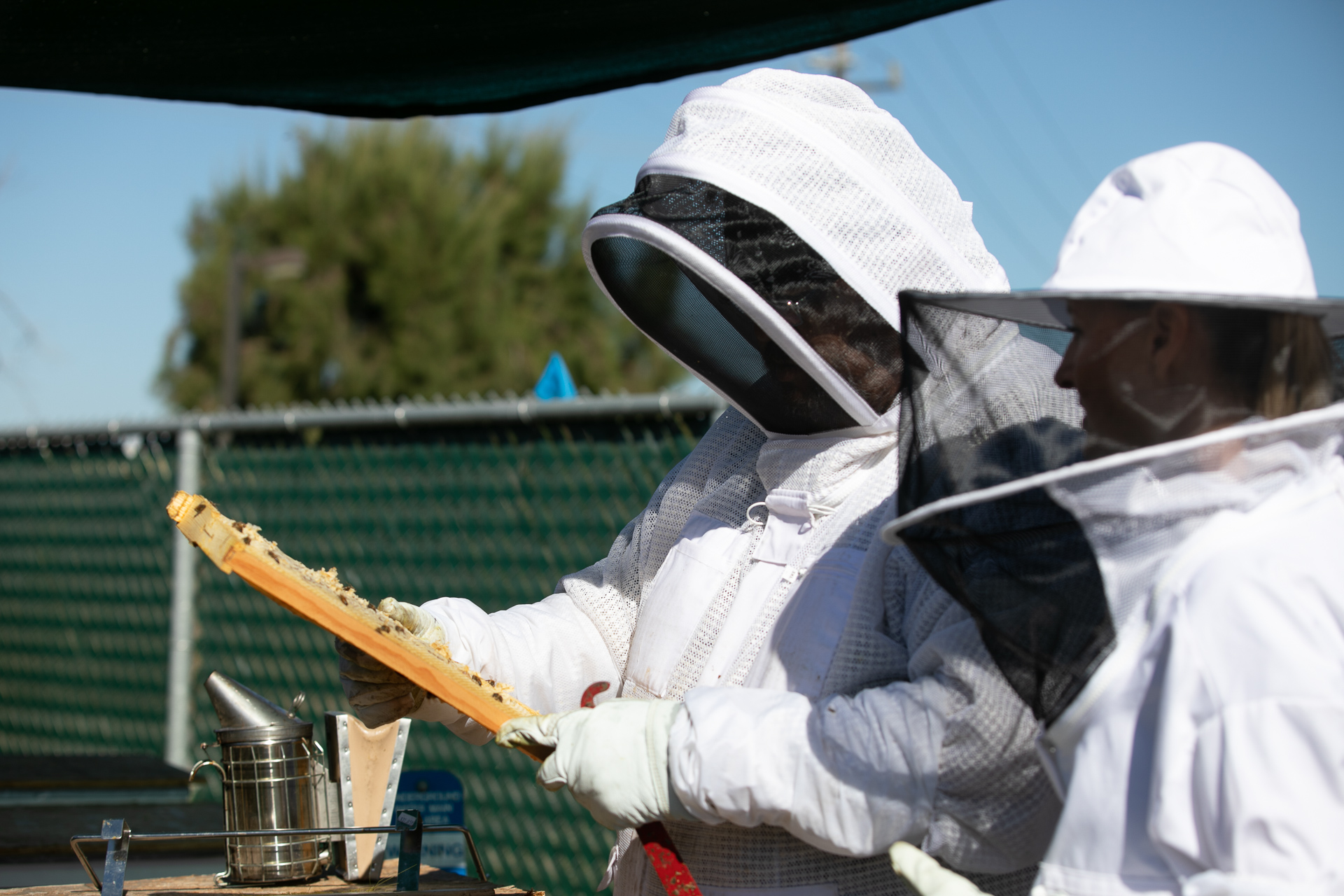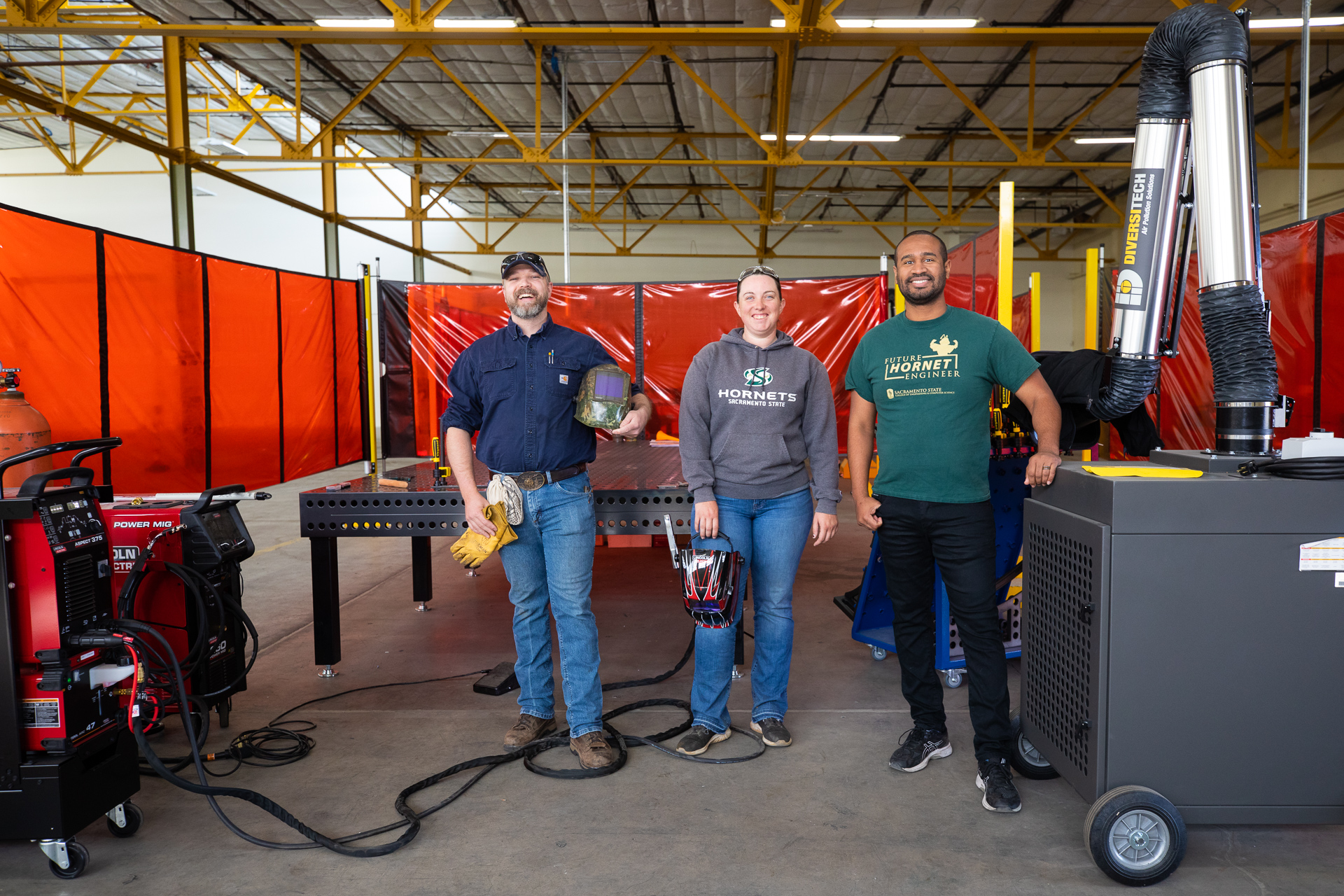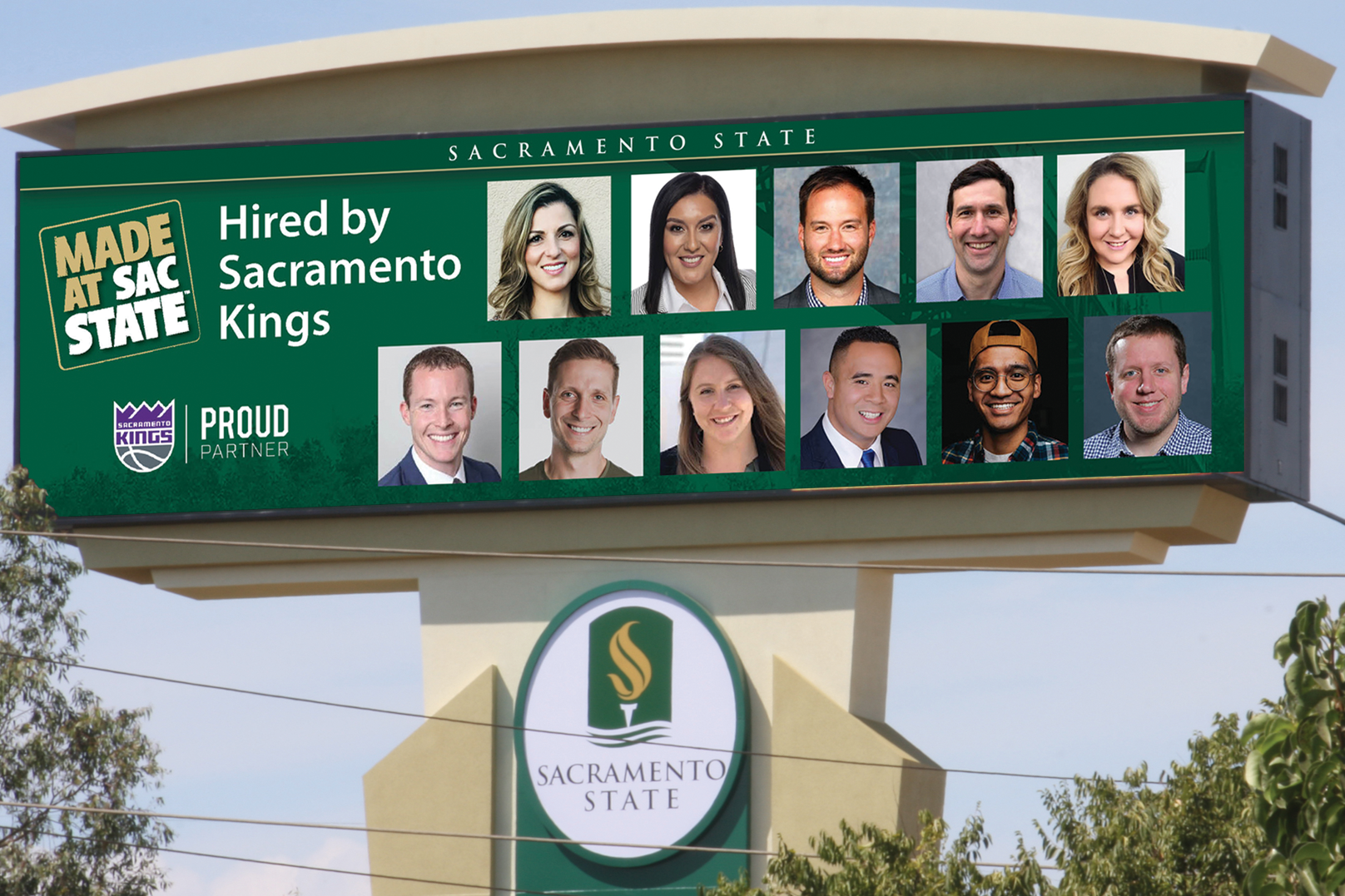Story Content
Sac State considers Police Department's future as search for retiring chief's replacement advances
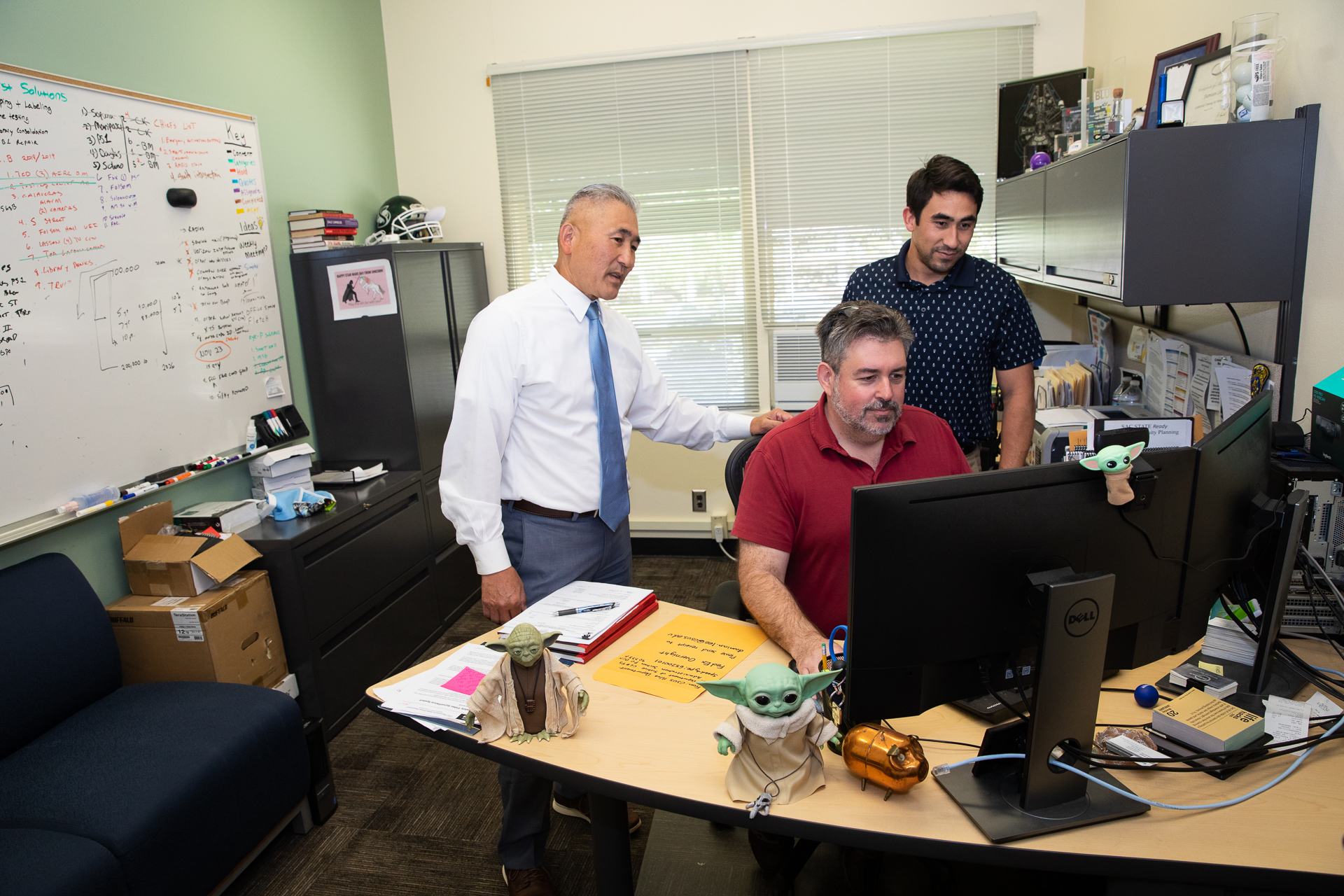
May 06, 2021
The first suspicious package – a bundle of electrical wires and assorted junk made to look like a pipe bomb but not actually an incendiary device – was discovered in September 2013 near the railroad tracks west of campus.
Over the next 10 months, 64 such inert parcels were found hidden across the University’s 300 acres.
When it was sorted out, members of the Community Service Officer (CSO) program – which expanded significantly during outgoing Sacramento State Police Chief Mark Iwasa’s watch – shared plenty of the credit.
“The CSO program is the jewel of our department because of how well it serves the students and the campus community,” said Iwasa, 59, who retires Wednesday, June 30, after 9½ years as Sac State’s top cop. A national search for his successor is underway.
CSO Daniel Knox, now a Sacramento County Sheriff’s deputy, was one of Sac State PD’s paid student interns during the fake bomb scare. He was so good at rooting out the concealed packages that FBI suspicion briefly fell on him.
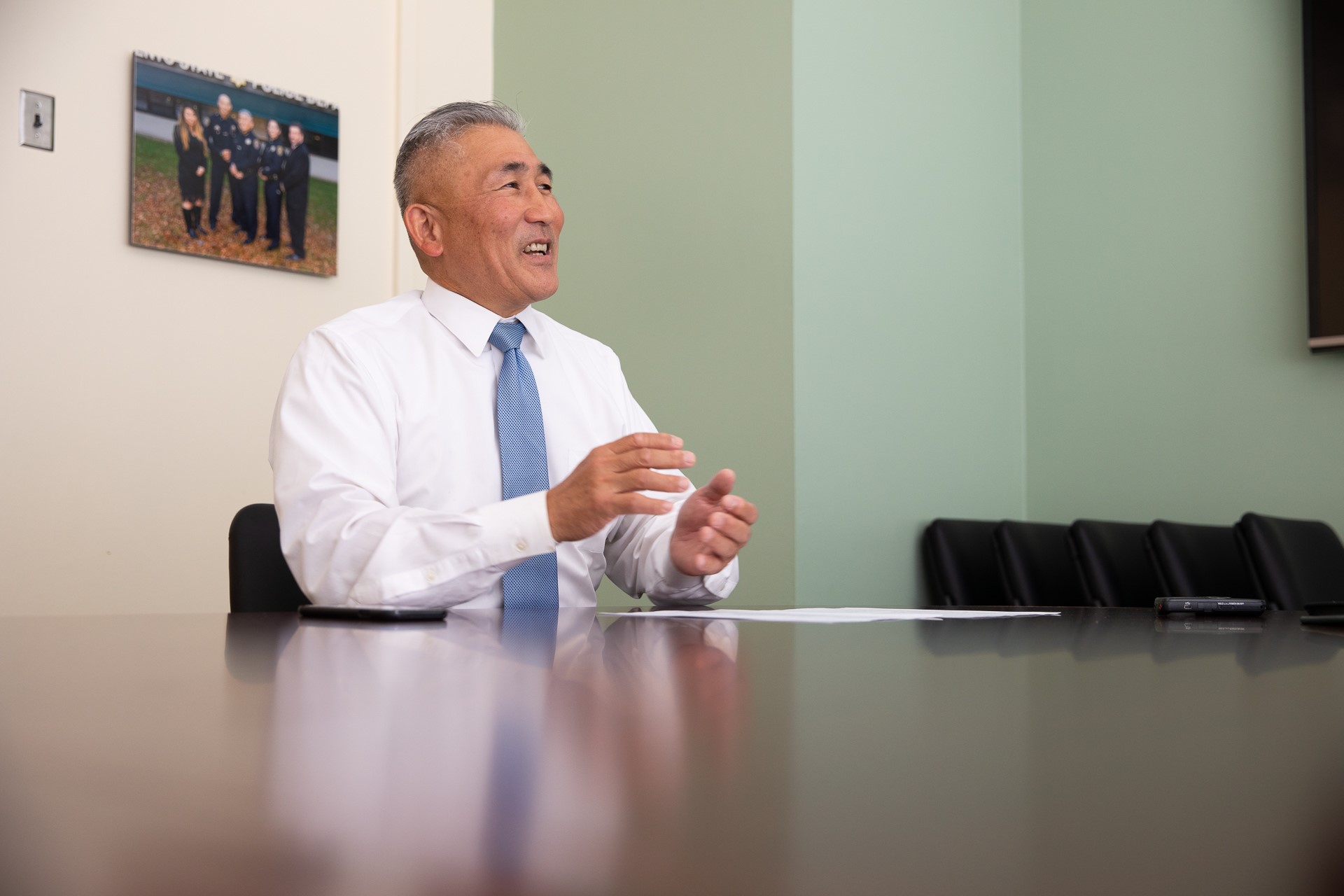
Worries about would-be explosives continued rattling the nerves of the campus community with the approach of the 2014 USA Track & Field Outdoor Championships, scheduled for June that year at Hornet Stadium.
Then Will Plummer, a Mechanical Engineering student who eventually became a CSO, gave law enforcement a break in the case.
Plummer saw a man behaving erratically near the Guy West Bridge and instinctively followed him across campus, recording on his mobile phone video of the man taking small packages from a tote bag and placing them in trash bins and near the Academic Information Resource Center. Plummer then gave the footage to Sac State police.
“We used that footage to get a high-quality photo of the person and put it on our Facebook page,” Iwasa said. “Someone with Capital Public Radio recognized him near Hornet Tunnel and called in right away. We got on scene and apprehended him. He had a ‘bomb’ in his possession, so we knew we had the right guy.”
Iwasa tapped Plummer for the CSO program, where he remained until graduating in December 2020 and taking an engineering job in the Bay Area. Plummer is the rare CSO not to pursue a career in police work.
“Our CSOs are really in demand by area law enforcement agencies,” Iwasa said. “More than 100 former CSOs are full-time peace officers, and three that I know of were selected as the outstanding recruit in their academy class. That says a lot about the candidates we produce.”
Sac State PD employed just 17 CSOs when Iwasa was appointed chief in January 2012. He nurtured the program and watched it grow to as many as 70 student interns in uniform at any one time.
“Our success isn’t measured by how fast we can get to a call, like in municipal policing. Here, it’s all about prevention, which is, in fact, the highest level of law enforcement.”
Along with improved campus safety, the CSO program is one of Iwasa’s proudest legacies as he prepares to leave his post.
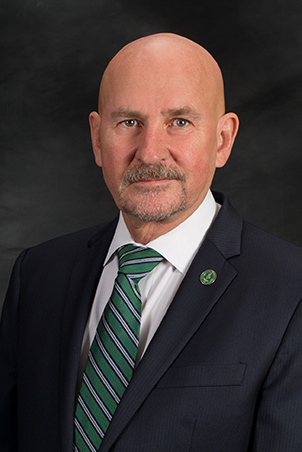
“Chief Iwasa has worked diligently to bring positive change and reimagine our campus Police Department,” said University President Robert S. Nelsen. “His commitment to protecting the Hornet Family through the dedicated student employees who serve in the CSO program is just one example among many.
“Sac State will miss Chief Iwasa. He has served our campus with distinction, and I’ll miss working with him.”
Other advancements, such as enhanced video surveillance on campus and staffed bike compounds, have helped lower instances of crime, statistics show. (Go to the 2020 Clery report on campus security, the most recent published with figures through 2019, for Sac State crime statistics.)
Willliam "Skip" Bishop, Sac State's director of Equal Opportunity and Title IX coordinator, called Iwasa a "valued ally" in the University’s efforts to address and eliminate sexual misconduct, dating violence, domestic violence, and stalking. Campus police became a key part of the University’s Sexual Violence Awareness Team under Iwasa.
"Thanks to Chief Iwasa, campus police also play a large role in communicating with victims regarding their rights and options," Bishop said.
Iwasa also helped the Office for Equal Opportunity (OEO) establish connections with local law enforcement.
"Those connections ensure that local law enforcement connect with campus police, and communicate with OEO when necessary, to address off-campus incidents involving students," Bishop said. "I truly appreciate Chief Iwasa’s commitment to our students and the campus community."
Iwasaʼs departure comes during a time of transition not only in policing but in public perceptions about the profession, factors the University acknowledges in criteria guiding the search for its next chief.
In Iwasa’s successor, the University is seeking a current or recently honorably retired sworn police officer with at least 15 years’ experience and a minimum of four years at the command level. A bachelor’s degree, or equivalent, is required.
Candidates also must have a proven understanding of the 21st Century Policing model, which was established by President Obama and is a guideline for implementing campus improvements by police throughout the CSU.
“With the CSU’s adoption of the guidelines, they definitely will be incorporated into the procedures and training of members of our police department,” said Jonathan Bowman, the University’s vice president for Administration and chief financial officer, who recently shared the process Sac State is following to find qualified candidates for the position.
“What I’m looking for in the next chief of police is someone able to acclimatize to the environment we’re in now, and to do that in higher education. That means understanding the issues with law enforcement as it pertains to 21st-century policing techniques,” he said.
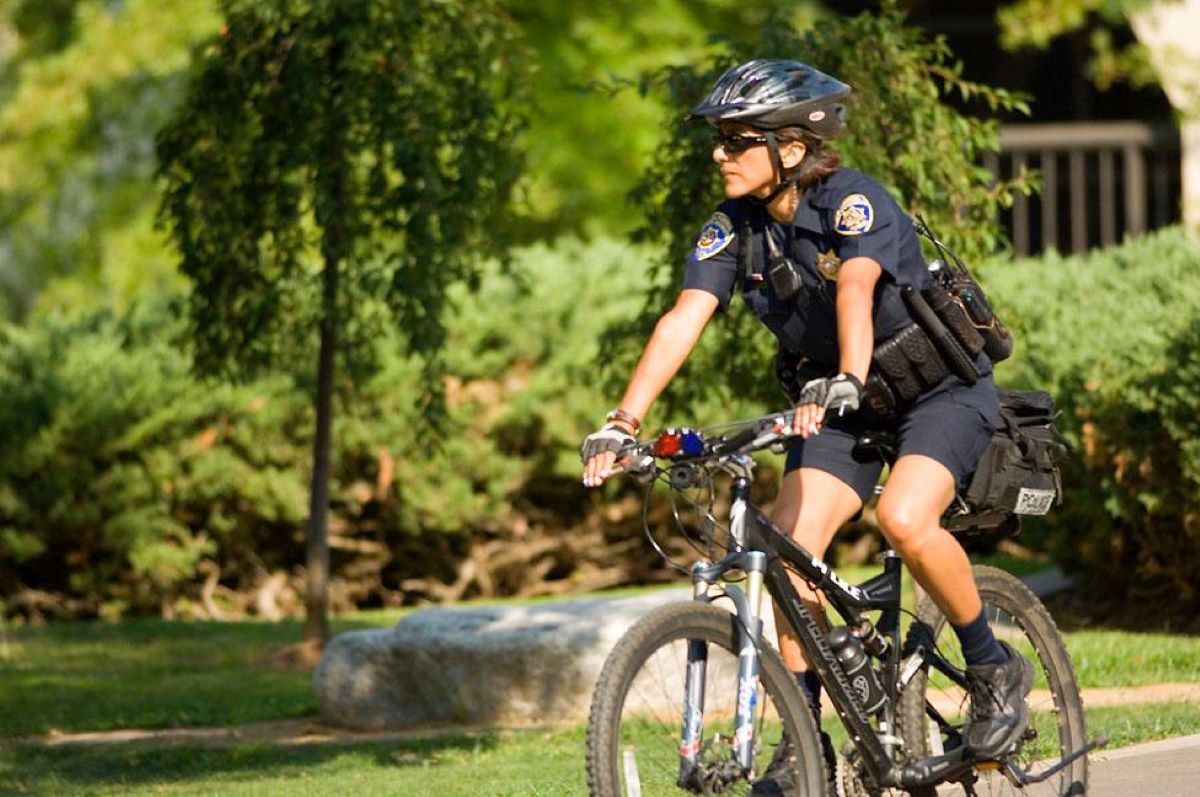
The next chief also must understand Title IX issues on a university campus, as well as the Clery Act and its impact on crime statistics, Bowman said. The new chief should be community oriented and able to work with the shared governance of a university.
“I hope that the campus is able to look at the quality of this Police Department as unique and treat it as theirs, not try to transpose some of the wrongs that have occurred elsewhere,” Iwasa said.
Iwasa's departure ends a chapter of a significant law enforcement career for a man with deep roots in the region whose work focused on prevention and providing a safe campus environment.
Mark Masami Iwasa grew up on his family’s grape and strawberry farm in eastern Sacramento County. His father hoped Mark would study engineering like his brother and sister, “but I couldn’t get past physics,” Iwasa said.
He was working at a freight warehouse in 1983 when co-workers convinced him to join them at the Sacramento County Sheriff’s training academy.
Through that experience, Iwasa found work that he considered meaningful and suited to him. He spent the next 28 years advancing and gaining experience in service areas including internal affairs, patrol, jails, and criminal investigations. He retired as undersheriff in January 2012.
While working, Iwasa attended Sacramento State, earning in 1990 a bachelor’s degree in Economics, with a Criminal Justice minor, and receiving his master’s in Public Policy and Administration in 1993.
Iwasa and his wife, Kathleen, also raised three sons: Matt, 29, works as an equipment systems specialist at Sac State, where he also studies Economics; Cameron, 27, who starred in soccer for UC Irvine, plays professionally as a highly respected striker for Sacramento Republic FC; and Nick, 22, is set to graduate from Sac State this spring with a bachelor’s degree in Communication Studies. He also plays infield for the Hornet baseball team.
Iwasa said his last few years as a Sacramento County undersheriff were sometimes difficult and included responsibility for overseeing budget-driven layoffs of more than 120 officers and 100 non-sworn staff.
The move to Sac State, with its different work pace and policing philosophy “was a nice change,” he said.
“Campus law enforcement is primarily focused on protecting students, faculty, and staff, and we have a paternalistic philosophy about that,” Iwasa said. “We have this bubble we’re trying to protect, and sometimes that means we have to push out at the edges of the jurisdiction to create a buffer zone and keep the criminal element away from campus.”
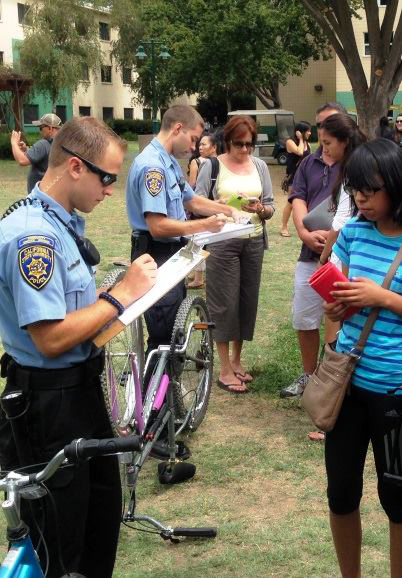
Campus safety has always been a priority. Under Iwasa’s guidance, Sac State enhanced a series of emergency call boxes marked with blue lights that connect directly to police dispatchers. Hundreds of state-of-the-art security cameras monitor the campus grounds and building interiors and exteriors. Nearly 100% of the campus community is signed up for Sac State’s Emergency Notification System.
“Our success isn’t measured by how fast we can get to a call, like in municipal policing,” Iwasa said. “Here, it’s all about prevention, which is, in fact, the highest level of law enforcement.”
Other key safety measures, such as programmable classroom door locks, have been initiated during Iwasa’s tenure. The locks, a $4 million investment, enhance student and faculty safety in case of on-campus threats, and also can be locked and unlocked automatically to protect computers, video cameras, and other valuables when classes aren’t in session.
Iwasa said statistics show people protected by locked doors are far safer during extreme circumstances.
“This is a system that’s doesn’t exist in most campuses across the country,” he said.
In addition to CSOs, who carry two-way radios, Sac State PD employs two dozen sworn officers, along with dispatchers and community service specialists.
Andrew Miller, a former CSO who graduated in 2015 with a degree in Business Administration, attended the Butte County Sheriff’s Department training academy before joining the Sac State Police Department as an officer later that year.
“The chief is the best boss I can imagine and one of the best leaders I’ve been around,” Miller said of Iwasa. “He always makes himself available. He’s more of a mentor than a boss.”
Noah Marty, in his role as 2020-21 president of Associated Students Inc. (ASI), often worked alongside Iwasa on campus matters.
“It is clear that he’s incredibly passionate about his work,” Marty said. “He’s been open to partnering with ASI. We are continuing to pursue partnerships with the Sac State Police Department, and I have appreciated Chief Iwasa’s dedication to shared governance and keeping our students safe.”
The hiring process will entail a search for a diverse group of candidates by the Roseville firm Bob Murray & Associates. A search committee, chaired by Bowman, will screen and interview candidates, and finalists will be invited to town hall meetings accessible to the campus community. The choice of a new chief is expected by the end of the Spring 2021 semester or the end of summer.
Media Resources
Faculty/Staff Resources
Looking for a Faculty Expert?
Contact University Communications
(916) 217-8366
communications@csus.edu
